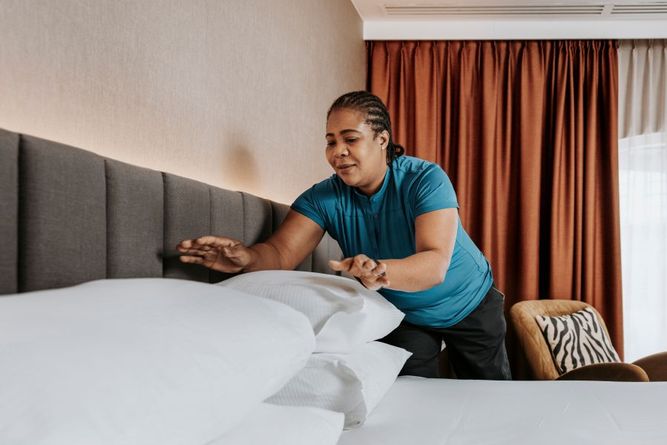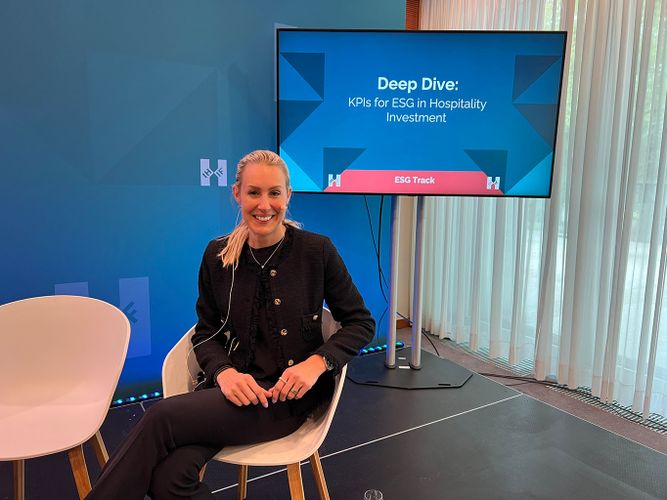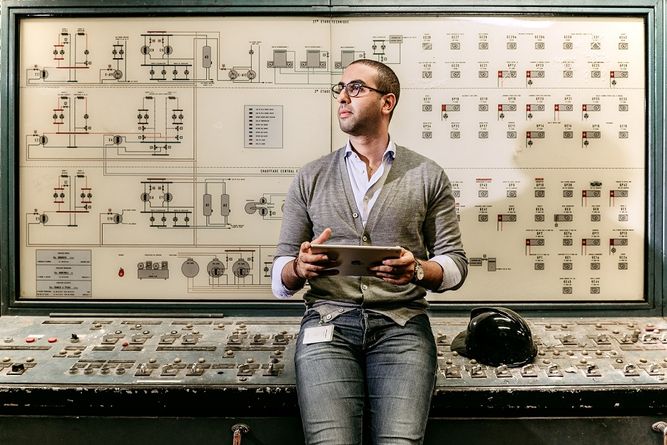"Today, we are much more structured, data-driven and business oriented"
A word from Caroline, our Director Sustainable Business, on what's going on around sustainability at Pandox.

What's going on around sustainability for Pandox at the moment?
A lot! Sustainability does not take a break because it is a prevailing pandemic. Rather, it is more important than ever to have full control over our properties and be able to work with the cost side backhouse when guests are absent. Before the pandemic hit, we began the roll-out of our green investment program, including installation of sub-meters in the properties and central BMS (Building Management Systems) that make it possible to limit energy and water consumption in the parts of the hotels that were not used, which means significant cost savings. In addition, water leaks were quickly detected during flushing to prevent legionella.
With a limited number of people in the properties, we have also been able to establish a new baseline in each property for energy, gas and water consumption. This enables even better precision in setting goals in how we will reduce our climate footprint in, among other things, reduced energy, and water consumption.
"We continue to certify our properties in accordance with BREEAM, which is also part of Pandox's green investment program."

In addition, we continue to certify our properties in accordance with BREEAM, which is also part of the green investment program. As hotels have generally run on low demand, the staff in Pandox's own operations have had more time to focus on these issues. Two properties were certified at the end of July 2020 and two more we hope to be ready by the turn of the year. In addition, we are starting the process for another 8 properties this autumn.
In addition to the environmental area, in-depth training in both anti-corruption for selected personnel and a planned training in trafficking for the general managers in Pandox's own operations will take place at the end of 2020.
What trends do you see in general in terms of sustainability?
In general, sustainability is becoming more and more professionalized and business integrated. In addition, it is pleasing that the EU has realized that it needs to put pressure on the capital market to bring about a faster climate transition. Future taxonomy regulations force financial players to report the green turnover of their holdings and are encouraged to allocate capital to companies that can show good results.
Also, we have the LCA (Life Cycle Assessment) perspective on the agenda. By finding out in which step in the production chain the environmental impact is greatest, we as a company can direct our environmental efforts in the right direction.
If we look specifically at the real estate industry, another trend is certification of properties, which I am convinced will increase as it is a good independent quality stamp for a structured sustainability work and means that important areas are managed within sustainability. But here there will probably also be an increased focus on the building - being more than a place to stay in - to also include several parameters to support people's health, well-being, and productivity.
"Another trend is certification of properties, which I am convinced will increase as it is a good independent quality stamp for a structured sustainability work."

A fairly new trend that is on the rise is “ZeroCo2”, which aims to achieve a net-zero climate impact of a new building that contributes to a climate-neutral public construction sector in Sweden and thus contributes to the long-term goal that Sweden should have zero net greenhouse gas emissions by year 2045.
How has sustainability work developed within Pandox in recent years?
At a much faster pace than I initially thought. Today, we work much more structured, data-driven, and business-oriented with these issues than before. This means that today, sustainability is a more natural part of most internal discussions and decisions than before. Pandox has a unique position in being a listed Large Cap company with a strong financial position while we have a flat and entrepreneurial organization where we can make decisions quickly. Our property portfolio of 156 properties also allows us to test new projects in pilot format to scale up those that show positive results. It encourages continuous learning, not taking too much financial risk and flexibility to change tracks if necessary.



